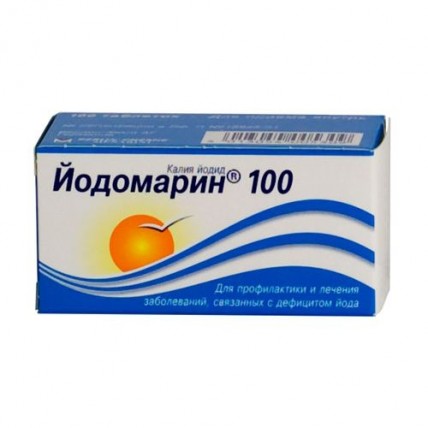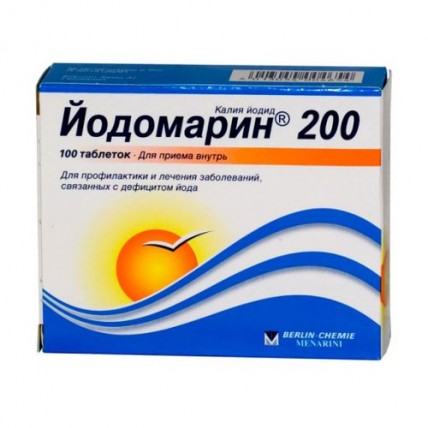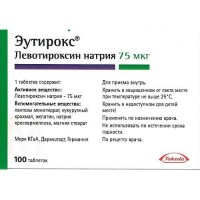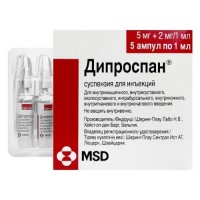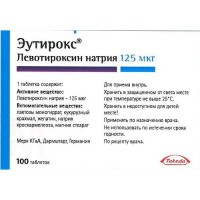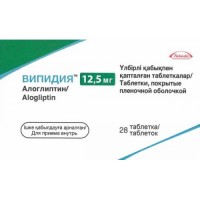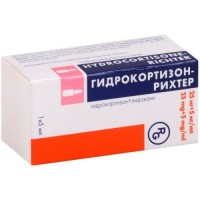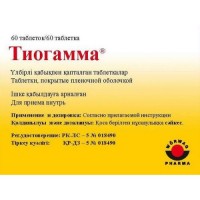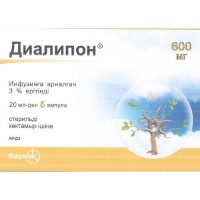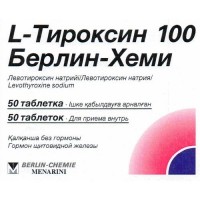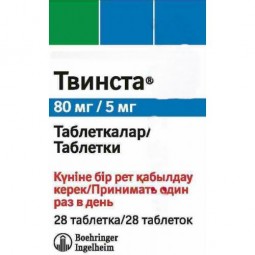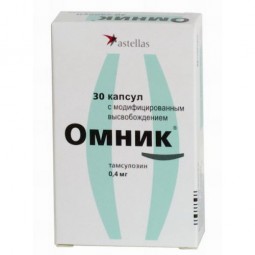Iodomarin® (Potassium iodide) 100/200 mcg
- $11.00
What Is Iodomarin® and How Does It Support Thyroid Health?
Iodomarin® is a dietary supplement used to support healthy thyroid function by providing a stable source of iodine, an essential mineral required for the production of thyroid hormones. It is available in two strengths—100 micrograms and 200 micrograms of iodine—and is formulated as potassium iodide tablets.
The thyroid gland relies on iodine to regulate metabolism, energy production, and development, especially in children and during pregnancy. When dietary intake of iodine is insufficient, Iodomarin® helps restore balance and prevent iodine deficiency-related conditions such as goiter.
What Is Iodomarin® Used For?
Iodomarin® is used in both prevention and treatment of iodine deficiency and associated thyroid disorders. Its main applications include:
- Preventing iodine deficiency disorders, such as endemic goiter
- Maintaining thyroid health after surgery or medical treatment for goiter
- Treating diffuse euthyroid goiter in newborns, children, adolescents, and young adults
Regular iodine intake is especially crucial in areas with low iodine content in soil and water, which can lead to widespread deficiency.
Who Should Not Take Iodomarin®?
Iodomarin® is generally well-tolerated but is not suitable for everyone. It should be avoided in individuals with:
- Allergy or hypersensitivity to potassium iodide or any tablet components
- Overactive thyroid (hyperthyroidism), whether overt or latent
- Thyroid adenomas or autonomous thyroid disorders, especially when using doses between 300–1000 micrograms per day
- Durhing's herpetiform dermatitis (chronic skin condition)
- Fructose intolerance, lactase deficiency, or glucose-galactose malabsorption
Always check for lactose content in the formula, as both Iodomarin® 100 and 200 contain lactose.
How Should Iodomarin® Be Taken?
Iodomarin® is taken orally after meals, with a sufficient amount of liquid. The tablet can be broken for accurate dosing. Dosage depends on age, condition, and specific health goals:
For Prevention:
- Infants and children: 50–100 mcg (½–1 tablet of Iodomarin® 100 or ¼–½ tablet of Iodomarin® 200) daily
- Adolescents and adults: 100–200 mcg (1–2 tablets of Iodomarin® 100 or ½–1 tablet of Iodomarin® 200) daily
- Pregnant or breastfeeding women: 200 mcg (2 tablets of Iodomarin® 100 or 1 tablet of Iodomarin® 200) daily
For Treatment of Goiter:
- Children and adolescents: 100–200 mcg daily
- Young adults: 300–500 mcg (3–5 tablets of Iodomarin® 100 or 1½–2½ tablets of Iodomarin® 200) daily
Preventive use can continue for several years or even lifelong, depending on the individual's dietary iodine intake.
Are There Any Side Effects?
When used as directed, side effects are rare. However, high doses or long-term use can cause:
- Metallic taste in the mouth
- Irritation of mucous membranes (e.g., runny nose, eye inflammation)
- Thyroid dysfunction, particularly in older adults with nodular goiter
- Skin reactions such as acne, rashes, or swelling of salivary glands
In very rare cases, iodine-induced hypothyroidism or hyperthyroidism may occur.
What Should I Know About Iodomarin® During Pregnancy or Breastfeeding?
Iodine requirements increase significantly during pregnancy and breastfeeding. Iodomarin® supports both maternal health and fetal development by ensuring adequate iodine intake.
- Recommended intake: 200 mcg daily
- Important caution: Avoid doses in the milligram range due to the sensitive response of the fetus and infant to high iodine levels
Iodine is actively transferred through the placenta and into breast milk—concentrations in breast milk may be up to 30 times higher than in maternal serum.
What Happens in Case of Overdose?
Iodine overdose is uncommon but serious, especially with very large doses. Symptoms may include:
- Brown staining of mucous membranes
- Vomiting and abdominal pain
- Diarrhea, potentially bloody
- Signs of dehydration and shock
In prolonged overuse, a condition called iodism may develop, with metallic taste, fever, swelling, or skin eruptions.
Treatment involves:
- Stopping iodine intake
- Gastric lavage with starch or sodium thiosulfate
- Managing electrolyte imbalances and, in severe cases, hospitalization
How Should Iodomarin® Be Stored?
Store Iodomarin® in a cool, dry place at temperatures not exceeding 25°C (77°F). Keep out of reach of children.
After opening, use within 200 days. Do not use after the expiration date printed on the package.
